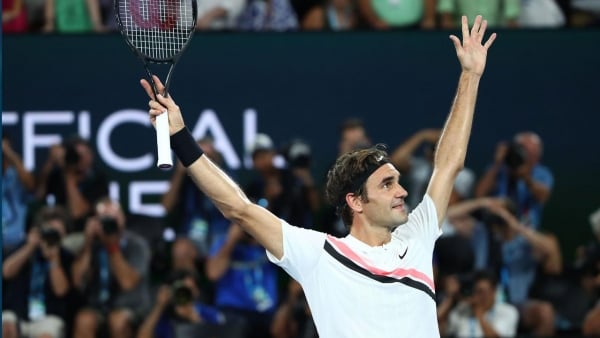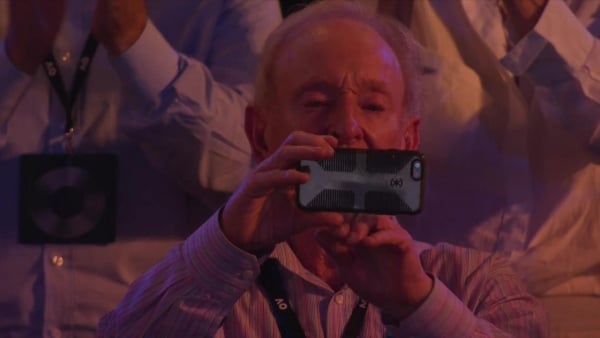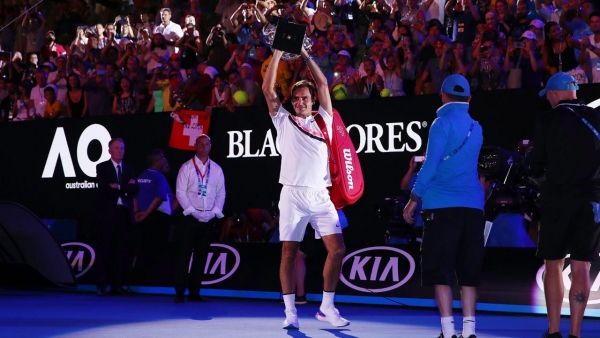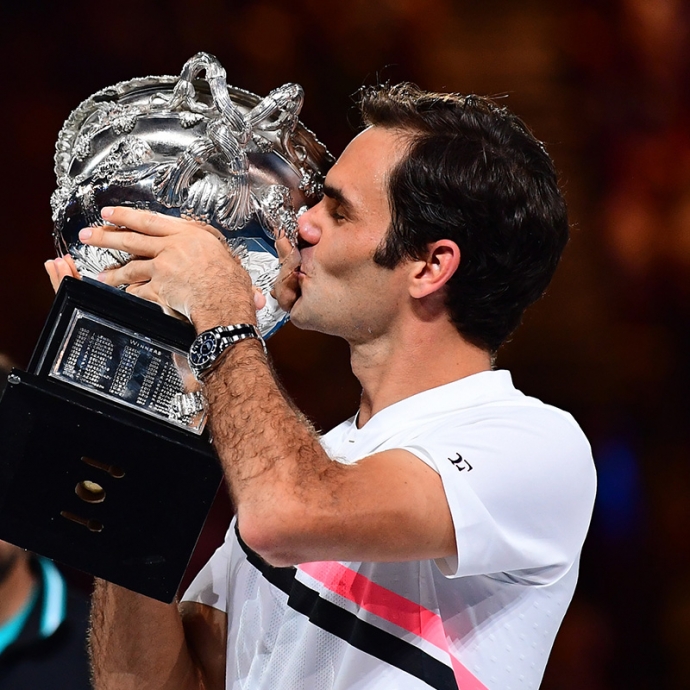He holds 20 Grand Slam titles, six of them Australian Open trophies, and he has been here many, many times before. Yet even Roger Federer cannot stop the jitters, the stage fright before a major final.
As the greatest player the game has ever seen finally dispatched Marin Cilic 6-2 6-7(5) 6-3 3-6 6-1, he was delighted, but he was also relieved. At last it was over. His goal had been reached but, more importantly, he could finally let go of all the tension and the emotion that he had carried with him for the previous two days.
It bubbled over as he made his acceptance speech at the presentation ceremony. He was biting his lip as he was introduced, and he was doing his level best to keep everything under control but finally, he could not hold it back any longer. Federer was crying his eyes out – and the more the crowd cheered, the worse it got. Rod Laver, up in the President’s Box, whipped out his phone and took a picture.
“I didn't see that through my thick tears, that he was taking a picture of me crying,” Federer said. “I don't know what to tell you. I think what happened is I got to the finals very quickly. The semis was cut short. I had a lot of emotions left in me because I didn't have to go to extreme like last year against (Kei) Nishikori, Stan (Wawrinka), so forth.
“When I start thinking about what I was going to say, every subject I touch actually is very meaningful and very emotional. Thanking your team, congratulating Marin, thanking the people, thanking the tournament. At the end it's like one big party.
“But I hoped over time in the speech I would start to relax a little bit, but I couldn't. It was what it was. I wish it wasn't so sometimes. At the same time I'm happy I can show emotions and share it with the people. If I got emotional, it's because it was a full crowd again. No people in the stadium wouldn't make me emotional, I'll tell you that. This is for them really also.”
The problem started, then, after the semifinal and got worse because the men’s final was to be played at night. That is a whole day to wait and think. And fret. Even for an experienced old hand like Federer, that is a long, long time to leave the mind to wander.
“I didn't fall asleep very well after the Chung match,” he said. “I think it surprised me that at this stage of a competition in semis, to get a walkover, that was very odd for me. I couldn't fall asleep until about 3 in the morning.
“All of the next day I was already thinking about how should I play Marin, how cool would it be to win 20, but no, don't think of it, but how horrible would it be to lose it. I had it for over 36 hours, to be honest. It was a lot.
“I was so bloody nervous all day. It was eating me up inside. That's why, when it was all over, I was just so relieved, to be quite honest.”
From a flying start, Federer lost the second set – because of nerves, he thought – and then found himself involved in a slugfest in the fourth set. At times, he was brilliant, at times he was struggling, but he managed to find a way to win. After all, that is what Federer has done for a lifetime.
There is no hint that the Great One is contemplating retirement, but he is looking forward to the day when he does not have to go through this mental torment any more. That said, it is probably best not to hold your breath waiting for him to call it a day.
He may be 36, he may have won everything there is to win – and won it many times – but he still wants more. Another fantastic two weeks in Melbourne has not satisfied him, it has merely whetted his appetite for the rest of the season and beyond.
“I've won three slams now in 12 months,” he said, looking impressed with himself. “I can't believe it myself. I just got to keep a good schedule, stay hungry, then maybe good things can happen. Then I don't think age is an issue, per se. It's just a number.
“But I need to be very careful in my planning, really decide beforehand what are my goals, what are my priorities. I think that's what's going to dictate how successful I will be.
“Exciting times ahead.”



